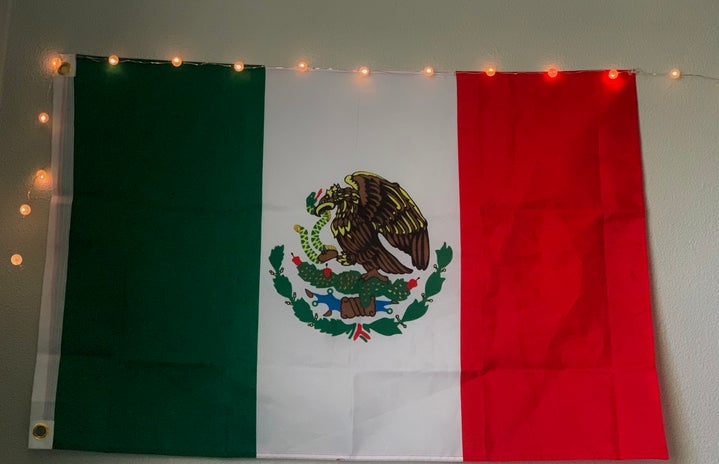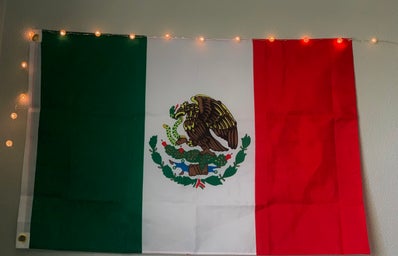While growing up, I would hear stories of my parents’ lives in Mexico and was in awe of how simple life could seem there at times. Despite the economic hardships they encountered, they were surrounded by their culture, something I sadly didn’t experience. As a child, I never really thought about race as a huge part of me as I was mostly concerned with watching cartoons and playing outside. But, as I have gotten older I have reflected on my experiences as a child based on the knowledge I have now.
I’m from a city in Washington called Puyallup, about 45 minutes south of Seattle. I have lived here my entire life and while it is the place I call home and where a portion of my extended family lives, I longed to experience the same things my parents did. The fiestas their pueblo had, the close relationship with cousins and the freedom one had while in Mexico. While I am grateful for the sacrifice my parents made in starting a new life in the U.S., I can’t help but wish that I could have grown up surrounded by my culture like my parents did.
As a kid, I felt pretty cool being able to speak two languages, but I still felt some shame when calling my parents from the classroom phone and speaking a different language in front of my peers. While no one directly said anything, the stares I received were enough to make me feel out of place for speaking a foreign language. People stared not out of judgement, but rather in awe and curiosity; but in turn, it made me feel like the class’s oddball. I had very few classmates that were Latinx or Hispanic and thus made me push away my culture. While no one explicitly stated I had to ignore that side of me, the pressure to fit into a white society got to me. In order to make friends in a school full of white individuals, I quickly learned to ignore the fact that I was Mexican. I felt like if I was too proud in my culture it would make me people not want to be friends with me if all I ever did was talk about being Mexican, so I ignored it.
I continued to do so for a greater part of my life. I never really had many friends who shared the same culture as me so when I was at home, I was Mexican, and when I was out in the world, I was American. At home, we spoke Spanish and my dad even discouraged us from speaking English, further making me separate the two cultures I was part of. He did so on the basis that we would forget our native language and argued that we could speak English everywhere and practice it anywhere, but at home we had to speak Spanish. Friends I had throughout elementary and junior high were never ones that I could express all of me with. I felt like I was presenting just half of me. The American side that tried to ignore my brown skin and never expressed pride in her culture. I listened to Mexican music but whenever it came on around others I was pretty hesitant to play it as I was overcome by shame for whatever reason. I felt almost as though it was forbidden to show my culture.
I saw other classmates take pride in their culture and longed to be like them. I wished I could have friends who were of the same background, and as corny as it sounds, have someone who could understand all of me.
It wasn’t until I got older that I started embracing my culture. Something that even my mom states is hard to do in a society that isn’t as homogenous as it is in Mexico. While there were other Latinos within our community, it was hard to find that sense of community in a world where all of us were just trying to fit in with those around us. Even my parents failed to keep part of their culture present in the U.S. as it just isn’t easy in such a populated area. Of course, their pueblos back home were largely populated, but they consisted of individuals similar to them – something that wasn’t the case here.
I met my best friend during sophomore year of high school and she was quick to appreciate my culture, something I found quite surprising. No one had ever taken much interest to learn about my culture and the differences between it and the American culture. I have always lacked confidence in myself and this reflected on the confidence I had towards my culture, but as my friend praised my culture for the beauty of it, I learned to do the same. Though she couldn’t understand the language, she was eager to learn about my culture and my family, something I had always kept separate from other friends. In contrast to my other friends, instead of merely ignoring the fact that I was Mexican just as I had done, she acknowledged it and pushed me to embrace it.
It took a lot of work on my part to overcome whatever shame I had surrounding my culture. I pushed myself to get out of my comfort zone as I wanted to fully explore and embrace both cultures I’m lucky to be a part of. When the Latino club at the community college I attended during high school did a Latino dance session, I surprised myself and my friends and danced along. While I have absolutely no sense of rhythm as my parents rarely took us out to Mexican parties, it was still something pretty big for me. When high school graduation rolled around, I was determined to wear a traditional Mexican serape, as a symbol of pride for my culture and also for my parents, to acknowledge their roots and sacrifices made in order to get me to where I was. Before I left for UW, my best friend even bought me a Mexican flag so that I could have it in my dorm as a constant reminder of my culture.
While growing up between two cultures led to a struggle with my identity and distance from my Mexican heritage, I have learned to understand that part of me a lot more. I am grateful for the people I have in my life now and am excited to continue to learn about myself and my cultures. I hope that more conversations on cultural marginality are held as I truly believe it is something that should be discussed. Representation matters and so does acknowledging the struggles of every member of a community.


